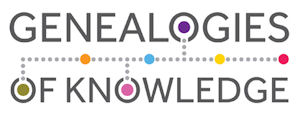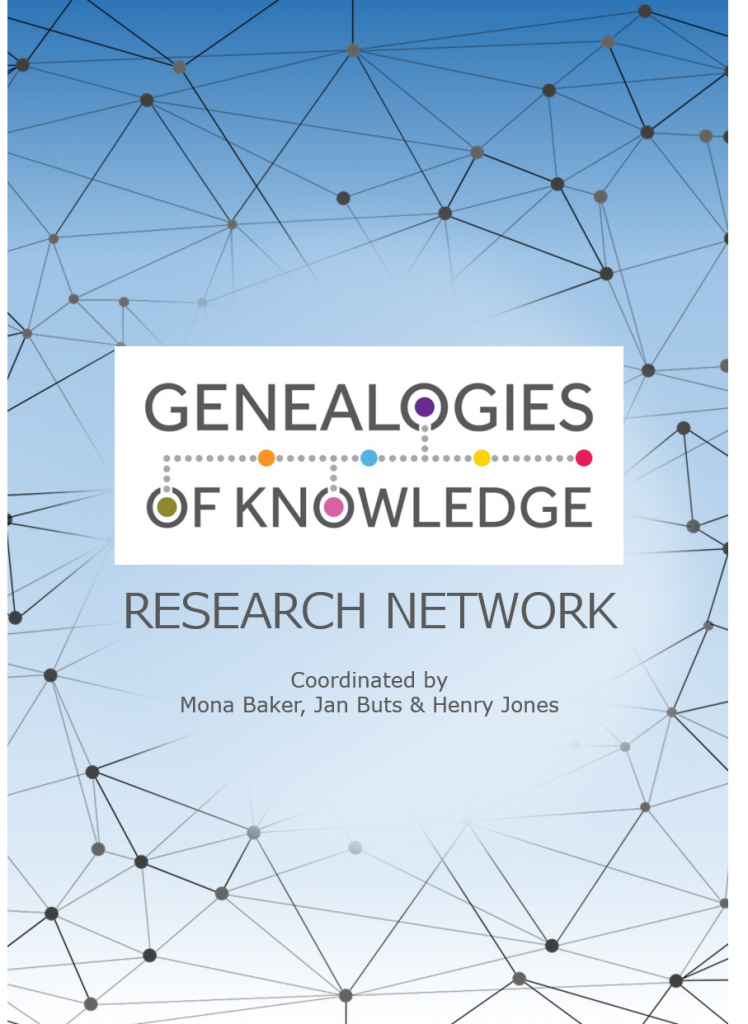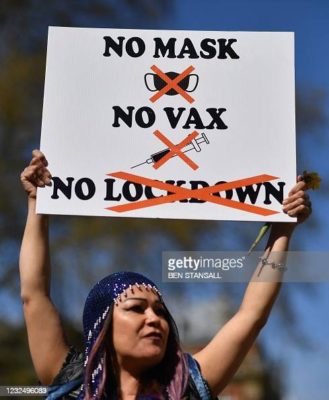
Genealogies of Knowledge Research Network
Coordinated by
Mona Baker, Jan Buts and Henry Jones
Remit Membership Outputs and Activities
The Genealogies of Knowledge Research Network builds on the research legacy of the four-year long, AHRC-funded project Genealogies of Knowledge: The Evolution and Contestation of Concepts across Time and Space to support the development of corpus-based conceptual research by the project team as well as research teams in other disciplines and locations. The project, which began in April 2016 at the University of Manchester (UK), has so far constructed five several diverse corpora with which to explore the role that translation and other sites of mediation have played in the evolution and contestation of key cultural concepts over the centuries and across languages. These include:
- a corpus of political and scientific texts written in Classical Greek by authors such as Plato, Aristotle and Hippocrates (3.2m tokens);
- a Latin corpus featuring the works of Roman authors such as Cicero, Tacitus and Livy, as well as medieval scholars such as Thomas Aquinas, Thomas Cajetan and Robert Grosseteste (1.5m tokens);
- a Medieval Arabic corpus containing commentaries by influential figures in the history of ideas such as Averroes and Avicenna, as well as translations of Greek texts by Hunayn Ibn-Ishaq and other renowned translators (3.1m tokens);
- a corpus of translations and retranslations into English of key texts in the development of political and scientific discourse, published from the mid-nineteenth century onwards (20.9m tokens); this corpus also contains a small number of non-translations (texts originally written in English) such as John Stuart Mill’s On Representative Government;
- and finally, an Internet corpus of blog posts, reports and news items posted online by radical groups on the (far) right and left of the political spectrum (4.2m tokens).
The corpora continue to grow to meet specific research needs and to take stock of a broader variety of shifts and continuities along the historical spectrum of political and scientific vocabularies. For this purpose, the Network will endeavour to make available material in additional languages such as French, Spanish and Norwegian, and from different periods such as the Renaissance or the eighteenth century, as well as the modern period.
Building on and extending the modnlp software architecture developed by Dr Saturnino Luz and Dr Shane Sheehan, initially for the Translational English Corpus, the project offers free access to powerful corpus analysis and visualization software that allows researchers to examine key moments of change in the use and meaning of concepts such as democracy, citizenship, truth, proof and evidence, highlighting the wide variety of ways in which these ideas have been mediated by and for different receiving cultures, as they travelled across time and space. The software is undergoing continuous improvements in order to cater for a variety of research perspectives. Our innovative visualization tools are integrated with our metadata-rich concordance browser, the functionality of which will come to include parsing options, as well as expanded textual information such as the division between text and paratext.
Going forward, the Genealogies of Knowledge Research Network aims to extend research in this promising new area of enquiry by supporting the development of further corpora, software tools and analytical methodologies relevant to this and related lines of investigation. Connecting scholars based across the humanities, the Network additionally hopes to promote greater interdisciplinary collaboration of mutual benefit to fields as diverse as translation studies, medical humanities, classics, cultural studies, linguistics, intellectual history, digital culture and computer science. Finally, we plan to host a further series of events, promoting the themes, findings and methods of research conducted by members of the Network among local and international audiences. Notably, these will include hands-on workshops intended to introduce postgraduate and early career researchers to a new generation of corpus-based translation studies, equipping them with the knowledge and tools needed to develop their own research projects.


